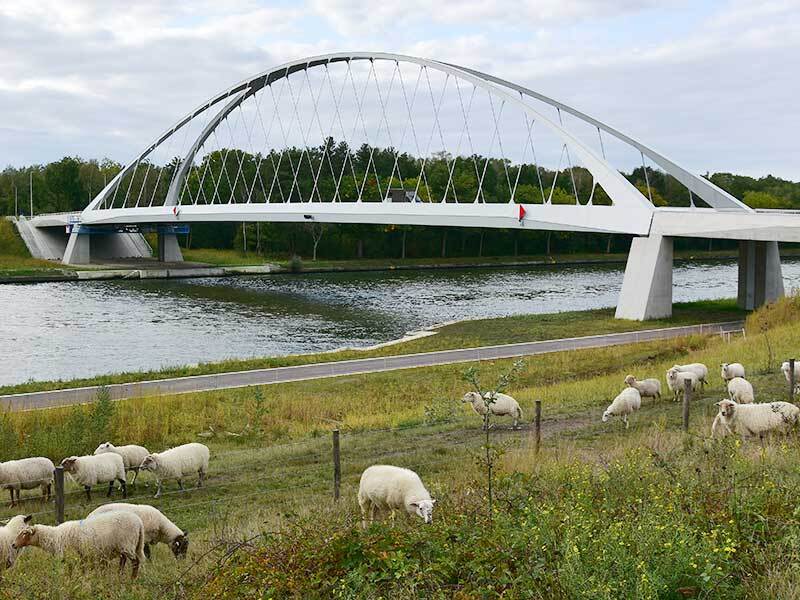Road works impact management bridges Albert canal
15078 / 17032 / 18050
From 2016 to 2020
TML supported contractor Franki in the development of a road works impact management approach for the bridge elevations over the Albert Canal. The project team conducted impact and risk analyses and proposed concrete measures to minimise traffic disruption, such as temporary asphalt pavements and optimisation of diversions.
With almost 40 million tonnes of goods transported per year, the Albert Canal is the most important waterway in Flanders. The volume of container transport has increased significantly in recent decades; the canal therefore needs an increase in capacity. However, the current limitation in clearance height and width under the existing bridges is a bottleneck. Therefore, between 2017 and 2020, De Vlaamse Waterweg planned to raise all bridges over the canal to a clear headway of 9.10 m so that barges with four layers of containers can sail safely and smoothly.
TML supported the contractor Franki in developing the roads works impact management approach to the works on the bridges. Specifically, TML worked out the approach for the tender of cluster I (seven bridges), the execution of cluster I, and the tender of cluster II (eight bridges).
TML deployed its expertise on impact management and traffic nuisance for this project. To this end, the project team worked out a road works impact management approach for all municipalities involved. On the basis of impact and risk analyses, TML proposed a set of concrete measures to reduce traffic nuisance, e.g., the construction of temporary asphalt pavements, the review of lighting arrangements in the vicinity of the works, and the optimisation of diversions, taking into account possible and/or existing interferences.

